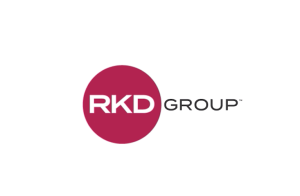By Richard H. Levey
People who live by the adage that there are no bad questions probably do not work in human resources. When a nonprofit manager — or one at any organization — is interviewing candidates, there are not only bad questions but questions that can land an organization in legal hot water.
There are also good questions which can help managers fairly evaluate a candidate. But the subtleties of good questions versus bad questions can present pitfalls for an interviewer, particularly if the interviewer is not a trained, human resources professional.
“Post-pandemic, virtual, hybrid and remote work issues caused people to probe more deeply, to want more conversations — on both sides,” said Deb Taft, CEO of Boston-based nonprofit executive search firm Lindauer. Equal Employment Opportunity Commission (EEOC), Title VII, and a variety of other state and federal anti-discrimination laws and regulations remain on the books. Most medical, political, religious, cultural issues and beliefs are still forbidden. The legality of questions about areas such as criminal history or previous salaries vary from state to state.
One approach that helps interviewers remain in compliance is positing workplace situations and asking open-ended questions. “You could say, ‘Which working conditions and modes do you find conducive to your work and why?’,” Taft said. “You cannot ask, ‘Does your family situation present any challenges or concerns we need to address if you were to come work here?’” The distinction in this example is that an applicant could not answer the second question without revealing family structure, and that distinction applies even for work from home positions.
“The power dynamic has shifted,” Taft said. “The pressure is now on the employer to reveal what it wants and needs.”
Revealment comes in many forms. For instance, as video interviews are increasingly used, candidates may become more blasé about the information a setting provides about them. “Video interviewing gives great access for underserved populations or populations that were not often given interviews,” Taft said. But candidates might inadvertently reveal something about themselves that would give an interviewer pause, such as political memorabilia.
In those cases, an interviewer would be best served by switching to stating what an organization is seeking, such as certain diversity, equity, and inclusion (DEI) values, and asking whether a candidate would be able to uphold the desired values, according to Taft.
Other visual background information might more subtle – and protected. If a candidate does an interview in front of a well-stocked home bar, or in front of a lot of alcohol-focused artwork, an interviewer might have concerns about the role alcohol plays in the candidate’s life. However, since alcoholism is seen as a disease, asking about the background would be forbidden.
An employee’s home might be more than an interview setting. The pandemic expanded work to home or hybrid situations — sometimes to an employer’s regret. Employers should be transparent about their expectations, regardless of whether they might alienate potential applicants.
“Employers should tell what the short-term and long-term work situation is,” explained Nurys Harrigan-Pedersen, president and founder of Chicago-based staffing agency Careers in Nonprofits. “The employer’s job is to ask the candidate what their first choice is, and then disclose what the plans are for that specific nonprofit.”
The long-term location question is one both applicant and hirers should make sure they bring up, even if a job listing mentions it. “It’s the number-one dealbreaker in the workplace right now,” Harrigan-Pedersen added.
Potential employers do have some leeway regarding non-office work questions. They can ask about reliable internet connection availability both at home and if a candidate travels and security measures such as locked file cabinets, secured computers or the ability to have sensitive conversations.
Even these questions are tricky. If an employer asks whether a prospect has a separate room for an office, the question could be perceived as an indirect inquiry about wealth. A safer option would be asking whether, if relevant, an applicant has the means to have a private conversation. If the applicant chooses to consider a spouse wearing noise-cancelling headphones adequate, that could suffice.
The pandemic also resulted in The Great Resignation — people deciding they did not want to be part of their current work environment — as well as The Great Reconsideration, in which workers began actively searching for more satisfying employment, however they defined satisfying. Just because an individual expresses a desire to make a shift from the commercial to the nonprofit world does not mean that individual is a good fit for a given position.
“During the pandemic, a lot of professionals would try new things, and they were able to get away with it,” Harrigan-Pedersen said. “They were able to secure a position where they had little experience only because of the lack of employees. Employers were quicker to say yes to a less-than-serious person just to fill the role.”
Some seemingly innocuous questions could run afoul of privacy laws. A casual question about vehicle ownership, unless a specific job requires candidates to have a car, might be construed as an inappropriate inquiry into personal wealth. A candidate applying for a work-from-home position might express unease about coming into an office for an interview, but interviewers inquiring about the reason their unease might inadvertently probe protected areas such as medical concerns, if the candidate or someone in the candidate’s household is immunocompromised.
“One of the common legal obligations that can arise is if a [potential] employee has a medical condition that needs to be accommodated by the employer,” said Nicholas Reiter, chair of law firm Venable LLP’s labor and employment practice. The interview setting is ripe for discussions about these types of topics – but only if the applicant brings them up.
“It is not uncommon, at least from what my clients report, for [an applicant] to say ‘What’s your work-from-home policy?,’” Reiter said. “That’s a perfectly fine question [for a prospect] to ask during an interview. But the employee might say, ‘I have the following medical condition and I will need to work from home four days a week. Is that an issue?’ That is a precarious moment, especially if the person conducting the interview isn’t trained and prepared to navigate the long list of medical accommodation issues. You could have a disability discrimination failure to hire situation arise if the candidate does not end up getting the job.”
Some seemingly subtler questions, such as about gun ownership, vaccine status or marijuana use outside of the work setting, are likely to expose a potential employer to liability.
“Various states do have laws that essentially say you can’t suffer an adverse employment action for engaging in a lawful activity that’s unrelated to your job,” Reiter said. “For the most part, candidates have much of the same protections that a current employee has.”
Occasionally applicants, especially those steeped in the share-it-all culture of social media, might volunteer facts that would fall under a protected category.
“I have had clients say ‘We didn’t want to know this piece of information; they volunteered it,’” Reiter said. “We weren’t planning on hiring them for completely legitimate reasons – their skill set doesn’t match what we’re looking for.”
According to Reiter, the best thing an employer can do in that situation is evaluate the candidate on the merits of their application and make sure the primary job duties for the position aren’t amorphous, that they’re clearly well established, and that they can explain, if necessary, why the candidate wasn’t selected,” Reiter continued.












